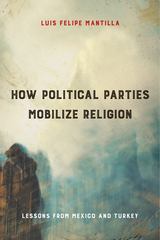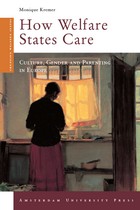7 start with H start with H

But the policy and political conundrums that Singapore faces today are complex and defy easy answers. Confronted with a political landscape that is likely to become more contested, how should the government respond? What reforms should it pursue? This collection of essays suggests that a far-reaching and radical rethinking of the country's policies and institutions is necessary, even if it weakens the very consensus that enabled Singapore to succeed in its first fifty years.

This volume analyzes the politics of hazardous waste siting and explores promising new strategies for siting facilities. Existing approaches to waste siting facilities have almost entirely failed, across all industrialized countries, largely because of community or NIMBY (Not in My Backyard) opposition. This volume examines a new strategy, voluntary choice siting—a process requiring mutual decisions negotiated between facility developers and the host communities. This bottom-up approach preserves democratic rights, recognizes the importance of public perceptions, and addresses issues of equity.
In this collection, an interdisciplinary group of experts probes recent examples of waste facilities siting in the United States, Canada, Germany, and Japan. Both the successes and the failures presented offer practical insights into the siting process. The book includes an introductory review of the literature on facility siting and the NIMBY phenomenon as well as instructive essays on the use of voluntary processes in facilities siting.
This book will be of value to policymakers, industry, and environmental groups, as well as to those working in environmental studies and engineering, political science, public health, geography, planning, and business economics.


In the new century, the triumph of democracy at the end of the Cold War turned to retrenchment. The core democracies, in America and Britain, succumbed to polarization and misrule. Dictatorships, such as China, made themselves assertive. New democracies in Central Europe turned to muddled ideologies of “illiberal democracy.” In this book, Stein Ringen offers a meditation on what democracy is, the challenges it faces, and how it can be defended. Ringen argues that democracy must be rooted in a culture that supports the ability of citizens to exchange views and information among themselves and with their rulers.
Drawing on the ideas of Machiavelli, Aristotle, Tocqueville, Max Weber, and others, Ringen shows how power is the fuel of government, and statecraft turns power into effective rule. Democracy should prize freedom and minimizing unfairness, especially poverty. Altogether, Ringen offers powerful insight on the meaning of democracy, including a new definition, and how countries can improve upon it and make it function more effectively. Timely and thought-provoking, How Democracies Live is a sober reminder of the majesty of the democratic enterprise.

Governments throughout the world confront enormous challenges when divesting. Whether it is poor-performing bank loans in Japan and Korea, military bases in the United States, or real estate in eastern Europe, the challenge of public divestment is more than just a question of how to map a path to economic efficiency. Conventional wisdom in public management and privatization literature says that the execution of such enormous tasks as divestment is typically done poorly, and that the government strategy is likely to be inefficient.
Mark Cassell argues that privatization must be understood as a political and administrative puzzle rather than simply an exercise in economic efficiency. This study of two successful divestment agencies — the U.S. Resolution Trust Corporation and the German Treuhandanstalt — presents a complex understanding of the two agencies' performance in privatizing hundreds of billions of dollars of assets following two very different crises, the savings and loan debacle in the United States and unification in Germany. In the U.S., the worst economic problem since the Great Depression forced the government to recreate and reshape private property on an immense scale. In Germany, melding East and West Germany involved converting an entire national economy that employed more than four million people. In each case, unassuming public agencies handled two of the largest public sales of assets in this century.
Cassell identifies the importance and effects of managerial structures and of national institutions — legislatures and executives — on the outcomes of the reform efforts.
This book will be of interest to those interested in alternatives to traditional public-sector structures, electoral connections to bureaucracies, comparative political economy, and the historic events of the aftermath of the savings and loan crisis and German unification. It is crucial reading for policy and public administration practitioners and scholars alike.

Political mobilization tends to take different forms in contemporary Catholic- and Sunni-majority countries. Luis Felipe Mantilla attributes this dynamic to changes taking place in religious communities and the political institutions that govern religious political engagement.
In How Political Parties Mobilize Religion, Mantillaevenhandedly traces the emergence and success of religious parties in Mexico and Turkey, two countries shaped by assertive secular regimes. In doing so, he demonstrates that religious parties are highly responsive to political institutions, such as electoral laws, as well as to the structure of broader religious communities.
Whereas in both countries, the electoral success of religious mobilizers was initially a boon for democracy, in Mexico it was marred by political mismanagement and became entangled with persistent corruption and escalating violence. In Turkey, the democratic credentials of religious mobilizers were profoundly eroded as the government became increasingly autocratic, concentrating power in very few hands and rolling back basic liberal rights.
Mantilla investigates the role religious mobilization plays in the evolution of electoral politics and democratic institutions, and to what extent their trajectories reflect broader trends in political Catholicism and Islam.

READERS
Browse our collection.
PUBLISHERS
See BiblioVault's publisher services.
STUDENT SERVICES
Files for college accessibility offices.
UChicago Accessibility Resources
home | accessibility | search | about | contact us
BiblioVault ® 2001 - 2024
The University of Chicago Press









